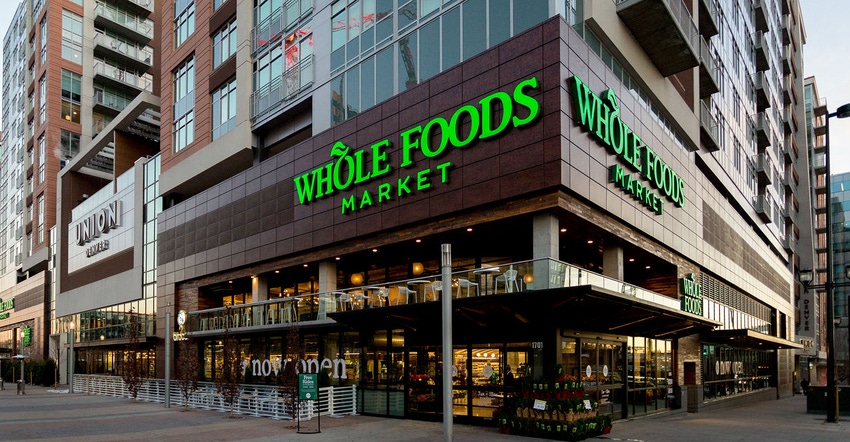Whole Foods Market cuts hundreds of corporate jobs as it restructures
Reorganization, which won't cost store or DC employees their jobs, is expected to take two months, according to an internal memo. New stores will keep opening.
April 21, 2023

Whole Foods Market is laying off several hundred corporate employees as it restructures to simplify its work and operate more efficiently, The Wall Street Journal reported.
The layoffs affect less than one-half a percent of the company's global workforce. Workers in the company's stores and distribution centers are not included in the layoffs, according to a company spokeswoman, and no stores or other facilities will close.
"As the grocery industry continues to rapidly evolve, and as we—like all retailers—have navigated challenges like the COVID-19 pandemic and continued economic uncertainty, it has become clear that we need to continue to build on these changes," the company said in a memo to employees. "With additional adjustments, we will be able to further simplify our operations, make processes easier, and improve how we support our stores."
The memo outlined specific changes Whole Foods Market will make:
Reduce its operating regions from nine to six and streamline the organization of parts of its global and regional support teams.
Centralize some units within its operations division.
Shift supply-chain management from a regional to a global support structure.
Adjust global support teams and enhance its team member services division.
It expects the overall reorganization process to last two months.
"We are confident these changes will allow us to better support our stores, team members and suppliers, elevate the customer experience, and position Whole Foods Market for continued growth," the company stated.
Whole Foods has consolidated its operations over the past several years as it has expanded and grappled with the complexities of being a large-scale specialty business. In 2021, the company announced plans to merge its global and regional merchandising teams and create new leadership roles for local products and supplier relationships.
Amid these changes, Whole Foods has continued to open stores across the country—growth that should continue well into the future. The spokeswoman said it currently has around 50 stores in development, and that it aims to eventually have a pipeline of around 100 stores, with 30 or more locations opening annually.
Amazon, meanwhile, has struggled to get a handle on its grocery business, having recently paused the expansion of its Amazon Fresh chain as it fine tunes its approach. In his recent letter to shareholders, Amazon CEO Andy Jassy said grocery remains a "big growth opportunity" for the company, and noted that scaling physical stores is critical to its success in the $800 billion business.

You May Also Like


